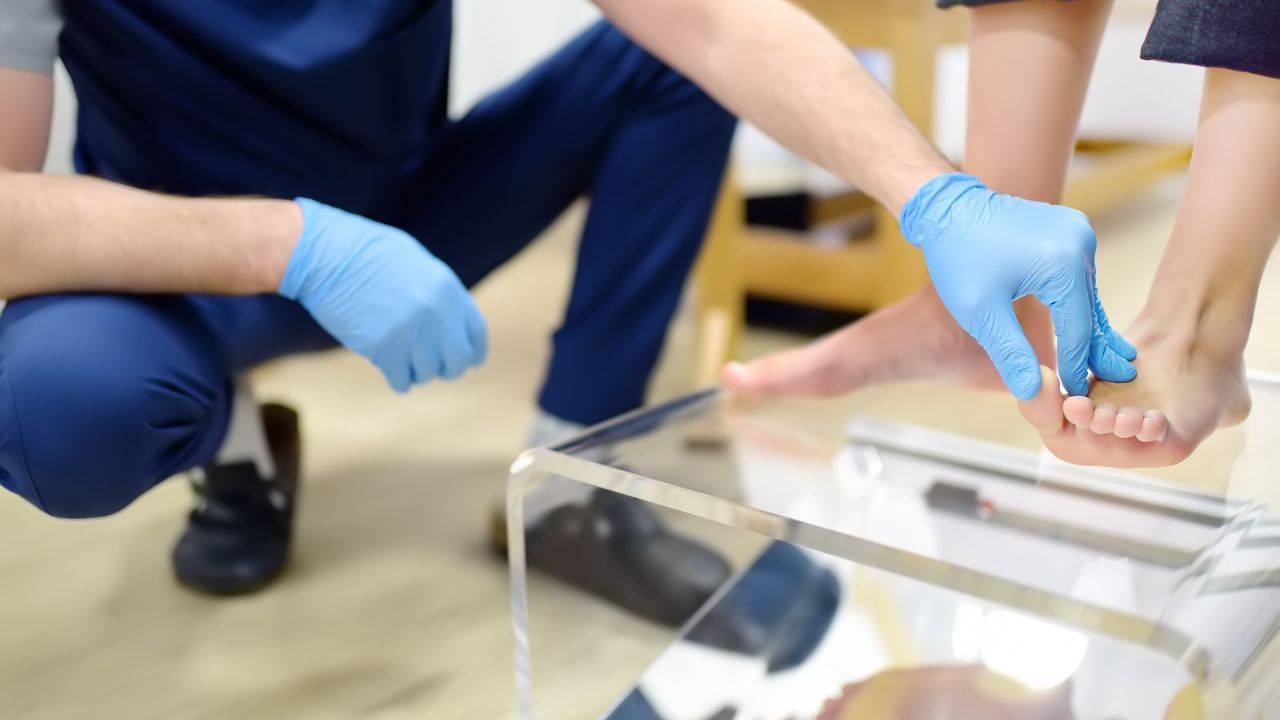How Long Does It Take to Recover from Plantar Fasciitis During Menopause?

For many women navigating the challenges of menopause, plantar fasciitis can be an unexpected and frustrating complication. This painful foot condition, characterized by inflammation of the plantar fascia (the thick band of tissue connecting your heel bone to your toes), can significantly impact daily life. A common question among menopausal women dealing with plantar fasciitis is: "How long will it take to recover?" Let's explore this question in depth, considering the unique factors at play during menopause.
Understanding Recovery Time for Plantar Fasciitis
Generally, plantar fasciitis can take anywhere from a few weeks to several months to resolve. However, for menopausal women, the recovery process can be influenced by several factors:
1. Hormonal Changes
The hormonal fluctuations during menopause, particularly the decrease in estrogen, can affect tissue elasticity and healing rates. This may potentially prolong the recovery period compared to younger individuals.
2. Bone Density Changes
Menopause often brings about a decrease in bone density, which can alter foot structure and potentially complicate the healing process.
3. Weight Fluctuations
Many women experience weight gain during menopause, which can put additional stress on the plantar fascia and potentially extend recovery time.
Factors Affecting Recovery Time
While menopause presents unique challenges, several factors can influence recovery time for all individuals with plantar fasciitis:
1. Severity of the Condition: Mild cases may resolve more quickly than severe or chronic cases.
2. Treatment Approach: The effectiveness and consistency of treatment can significantly impact recovery time.
3. Individual Health Factors: Overall health, fitness level, and any underlying conditions can affect healing rates.
4. Adherence to Treatment: Consistently following recommended treatments and lifestyle changes is crucial for timely recovery.
Typical Recovery Timeline
While individual experiences may vary, here's a general timeline of what you might expect:
- 2-4 Weeks: With proper treatment, you may start to experience some pain relief.
- 1-3 Months: Many people see significant improvement in symptoms.
- 6-12 Months: For more severe or chronic cases, it may take this long to achieve full recovery.
It's important to note that for some menopausal women, this timeline might be extended due to the factors mentioned earlier.
Accelerating Recovery: The Mr. Plantar Fasciitis™ Method
While traditional treatments can be effective, many menopausal women find faster relief with specialized approaches. The Mr. Plantar Fasciitis™ Method is designed to address the unique challenges faced by women over 40, potentially accelerating the recovery process. Here's how it works:
1. Reconnect Phase: This initial phase focuses on immediate pain relief and tissue repair, often providing noticeable improvements within days.
2. Rebuild Phase: By strengthening the feet, ankles, and surrounding muscles, this phase helps create a stable foundation for long-term recovery.
3. Renew & Remodel Phase: This final phase is crucial for preventing recurrence and maintaining foot health throughout menopause and beyond.
Tips for Faster Recovery
Regardless of the treatment method you choose, here are some tips to potentially speed up your recovery:
1. Consistent Treatment: Follow your treatment plan diligently, whether it's the Mr. Plantar Fasciitis™ Method or another approach.
2. Proper Footwear: Wear shoes with good arch support and cushioning.
3. Weight Management: Maintain a healthy weight to reduce stress on your feet.
4. Regular Stretching: Perform gentle stretches for your feet and calves daily.
5. Gradual Return to Activity: As you start feeling better, increase your activity levels slowly to avoid reinjury.
When to Seek Additional Help
If you're not seeing improvement after several months of consistent treatment, or if your pain is severe, it's important to consult with a healthcare professional. They can rule out other conditions and suggest additional treatments if necessary.
Conclusion
While recovering from plantar fasciitis during menopause can present unique challenges, relief is possible. With the right approach, many women find significant improvement within a few months, and sometimes even sooner. The key is to be patient, consistent with your treatment, and attentive to your body's needs.
Remember, every woman's journey through menopause is unique, and the same is true for plantar fasciitis recovery. By using a targeted approach like the Mr. Plantar Fasciitis™ Method, which takes into account the specific needs of menopausal women, you can optimize your recovery time and get back to living your life comfortably and confidently.
Ready to accelerate your plantar fasciitis recovery?
Discover how the Mr. Plantar Fasciitis™ Method can provide fast, effective relief tailored to your menopausal needs. Start your journey to pain-free feet today!
Frequently Asked Questions
Q: Can menopause really affect how long it takes to recover from plantar fasciitis?
A: Yes, menopause can influence recovery time. Hormonal changes, particularly the decrease in estrogen, can affect tissue elasticity and healing rates. Additionally, menopausal-related factors like weight gain and decreased bone density can impact foot health and potentially extend the recovery period.
Q: Is it normal for plantar fasciitis to last longer than a year during menopause?
A: While it's not uncommon for plantar fasciitis to persist for several months, especially during menopause, lasting more than a year is considered chronic. If your symptoms haven't improved significantly after 6-12 months of consistent treatment, it's advisable to consult with a healthcare professional to reassess your treatment plan.
Q: How can I tell if my plantar fasciitis is improving?
A: Signs of improvement include:
- Decreased pain, especially with your first steps in the morning
- Ability to stand or walk for longer periods without discomfort
- Less stiffness in your foot
- Improved flexibility in your foot and ankle
Remember, progress can be gradual, so pay attention to small improvements over time.
Q: Are there any menopause-specific treatments that can speed up plantar fasciitis recovery?
A: While there aren't treatments exclusively for menopausal women with plantar fasciitis, approaches that consider hormonal changes can be beneficial. The Mr. Plantar Fasciitis™ Method, for instance, is designed with menopausal women in mind, addressing factors like changes in tissue elasticity and bone density.
Q: Can stress associated with menopause affect plantar fasciitis recovery?
A: Yes, stress can potentially slow down healing processes in the body. Menopause can be a stressful time for many women, and this stress could indirectly impact plantar fasciitis recovery. Stress management techniques like meditation or yoga might be helpful additions to your treatment plan.
Q: How does the recovery time with the Mr. Plantar Fasciitis™ Method compare to traditional treatments?
A: The Mr. Plantar Fasciitis™ Method is designed to provide faster relief compared to many traditional treatments. While individual results may vary, many users report noticeable improvements within days of starting the program, with significant relief often achieved within weeks rather than months.
Q: If I'm going through menopause, should I expect to deal with plantar fasciitis indefinitely?
A: No, plantar fasciitis is not a permanent condition, even during menopause. With proper treatment and management, most women can expect significant improvement or complete resolution of symptoms. The key is finding an effective treatment approach and being consistent with it.
Struggling with persistent plantar fasciitis during menopause?
Don't resign yourself to ongoing pain. Discover how the Mr. Plantar Fasciitis™ Method can provide targeted, effective relief tailored to your menopausal needs. Take the first step towards faster recovery today!





